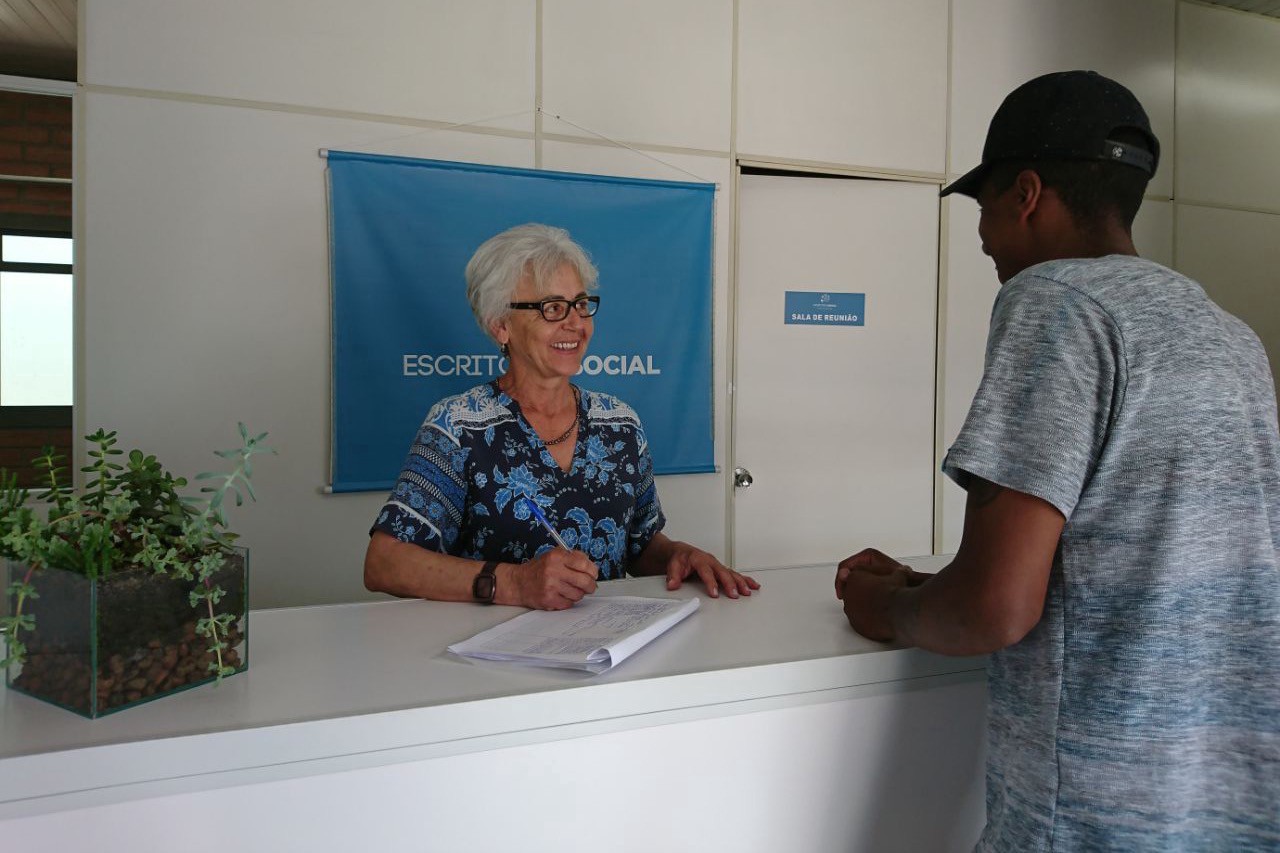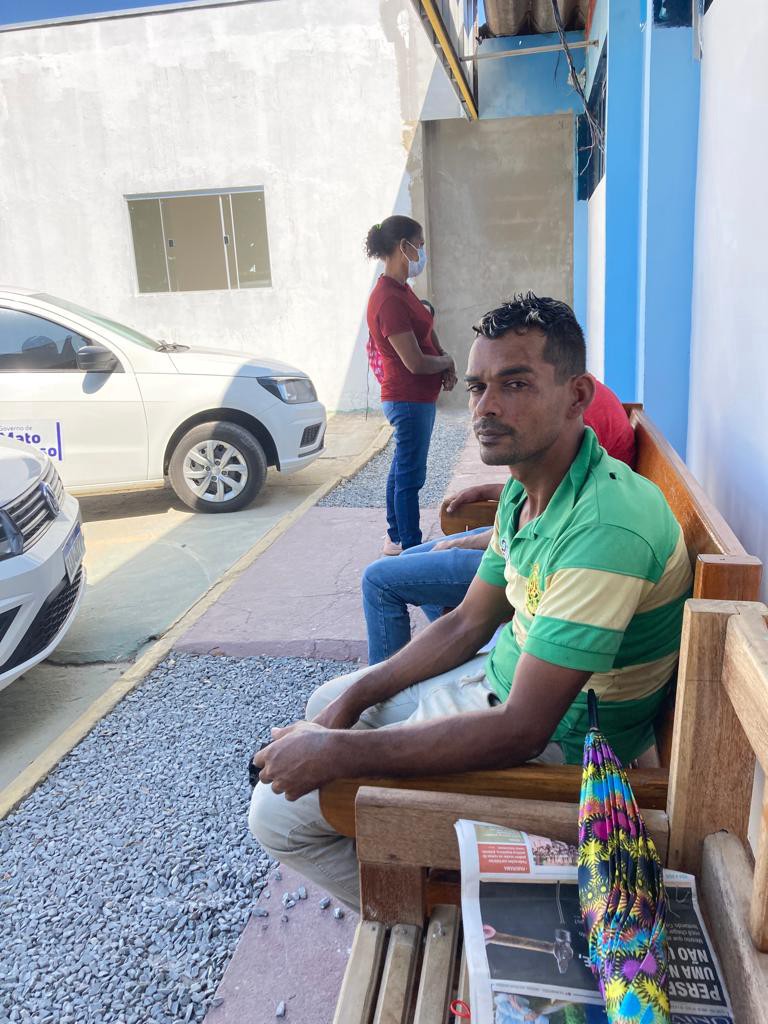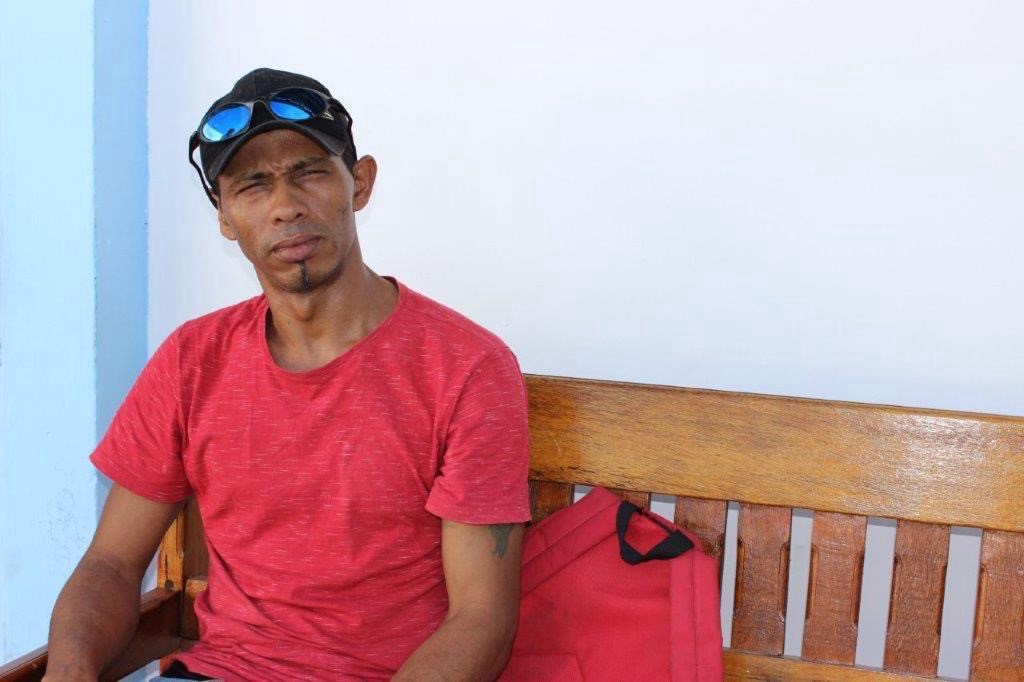In Brazil, reintegration service helps former prisoners rebuild their lives
“A second chance.”
December 1, 2022

In 2022, more than 755,000 adults were incarcerated, exceeding the maximum capacity of jails and prisons by about 70 percent, according to Human Rights Watch.
Lauro José dos Santos works as a general services assistant in the capital of Mato Grosso. The 40-year-old native of Cuiabá is rebuilding his life after 12 years of imprisonment by trying to start a family and get his own house.
Three years ago, after leaving the penitentiary, he did not have a place to live or contact with his family. He did not have identification documents and was emotionally unstable due to drug and alcohol abuse.
In retrospect, nowadays he attributes his recuperation to the Social Office, a service that helps former detainees of the prison system by providing access to a support network in areas such as professional qualification, housing, documentation and health.
“I left the system in 2019 and asked for help. Since then, the Social Office has supported me in both phychological and social care. I arrived here and noticed that the doors were open. They treated me very well and showed me there’s a second chance,” he says.
Once a week, Lauro goes to the Social Office in Cuiabá, located in Boa Esperança, to take part in vocational courses and talk to phychologists. It was there that he got information about how to open a bank account, a prerequisite to take one of the job opportunities provided by the service.

Thanks to the Social Office, Lauro José dos Santos who was released after 12 years behind bard was given a second chance at life through emotional support and vocational training.
Created by the National Council of Justice (CNJ) in 2016 and present in almost all units of the Federation, the Social Office is a public institution managed jointly by the Judiciary and Executive Power. The expansion and optimization of the service are part of the Doing Justice programme, a partnership between CNJ and UNDP with the support of the Ministry of Justice and Public Security, through the National Penitentiary Department.
The service is responsible for supporting people released from the prison system, in part with referrals for services for health and psychosocial care, education, training and professional qualification, family assistance and more.

The Social Office, a joint project by the National Council of Justice (CNJ) and UNDP helps newly released prisoners reintegrate into society thanks to a network of volunteers offering vocational training and psychological support. Photo: Agência de Notícias do Paraná
“The first step of the service is the initial meeting, which helps indentify the former detainees’ needs. Often they say they want to work, but it is visible that they still can’t for phychological reasons or due to substance abuse,” says the executive director of Cuiabá’s Social Office, Beatriz Dziobat.
“This way, we avaluate their real situation. We help them with housing, phychological care, all done through volunteer work. We send them to health units and to the Social Assistance Reference Centre,” she continues.
“We also get in touch with the family, subscribe them in vocational courses, and only after that, we help them find jobs. Frequently, we have to take them personaly to the Psychosocial Care Centre (CAPS), in cases of people with mental disorders,” she said.
The prison population of Mato Grosso is of about 12,000 people. Since March 2022, the Social Office of Cuiabá has helped about 500 people. Of this total, at least 70 remain in constant monitoring. The staff actively seek out former detainees, confirming if they are in fact being supported by the health services and going to work.

Many former inmates who are released back into society suffer from psychological issues, often compounded by debilitating drug and alcohol abuse.
“Lauro came here with a serious alcoholism issue, crying because he didn’t have anywhere to live. In these cases, it’s no use sending them to work. We are monitoring him closely: he brings us the receipts to show that he’s been at CAPS, that he continues treatment for the abuse of alcohol and drugs, undergoes phychological and medical care,” explains Dziobat.
Most of the former detainees helped by the Social Office of Cuiabá are male, between 30 and 40 years of age, black or brown-skinned with a low education level, and some are illiterate. The lack of schooling is one of the challenges, since a lot of job opportunities depend on elementary or high school gratuation. In addition, it’s estimated that 90 percent of former detainees do not have an ID.
The Social Office offers vocational courses such as stockist, confectioner, baker, electrician, mechanic and computer technician. The contractors are public bodies and companies working with the government that have agreed to offer job opportunities to former detainees.
“I’m away until my life gets better and I get my place back.”
Native of Mato Grosso do Sul, 37-year-old Lindomar Ferreira Barbosa left the prison system in March 2022. He turned to the Social Office, and today he works as a general services assistant for Cuiabá’s City Hall, sweeping streets and sidewalks.
Born in the state capital, Campo Grande, Lindomar left home at age 12. Ever since then he has lived in São Paulo and Goiânia. “I’ve wandered all over Brazil. Today I’m here, living in a shack in São Mateus. I’m away from my family until my life gets better so I can get my place back,” he says.

The Social Office helped 37-year-old Lindomar Ferreira Barbosa secure a job sweeping streets and sidewalks at Cuiabá’s City Hall.
Staying away from family is a common practice amongst the former detainees helped by the Social Office of Mato Grosso. Often the staff actively search for relatives willing to get back in touch. That was the case with 28-year-old Luiz Eduardo de Souza, who works as a gardener nowadays.
“When I left the system, the Social Office called me to show me the project. It’s a very good project; it has helped me a lot because I was also involved in bad things, mixed with the wrong people, with drugs. That ended up pushing me away from my family, from society. We lose dignity as citizens,” he says.
“As I started coming here, the speeches opened my mind, got my head straight, and today I already have a job. I’m going to start an electrician course, and thank God, I was able to restore contact with my family, which was what I wanted most,” he says. He also receives food care packages and transportation allowance to be able to commute.

Upon his release, 28-year-old Luiz Eduardo de Souza was unemployed and estranged from his relatives. Thanks so the Social Office, he secured a job and more importantly, reconnected with family — crucial steps towards breaking the cycle of violence. Photos: UNDP Brazil/Luciana Bruno
For the coordinator of the Monitoring and Inspection Group of the Prison and Socio-Educational System of Mato Grosso, Judge Geraldo Fidelis, the Social Office operates on the belief that it is necessary resocialize people who were deprived of freedom in a dignified way in order to stop the cycles of violence.
“Our idea now is to improve the Social Office of the capital and extend it to other cities that have interest in it,” he says. In the state of Mato Grosso, the Social Office is present in Cuiabá, Jaciara, Lucas do Rio Verde, Mirassol and Cáceres.
***
About Doing Justice
The Social Office is part of the Doing Justice programme, the result of a partnership between the National Council of Justice of Brazil (CNJ) and the United Nations Development Programme (UNDP), which supports the social reintegration of former detainees of the prison system.
The target audience of the programme includes actors of the criminal justice system, about 800,000 people in the prison system and 140,000 teenagers in the juvenile system. The programme aligns to many Sustainable Development Goals (SDGs), mainly Goal 16 on Peace, Justice and Strong Institutions.

 Locations
Locations


